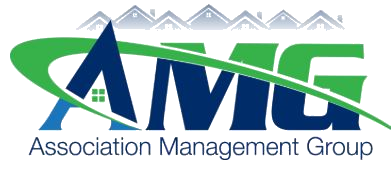Introduction
Volunteers are the backbone of any thriving homeowners association (HOA). They bring diverse skills, fresh perspectives, and a passion for enhancing community life. However, recruiting, engaging, and motivating these volunteers can be a challenge. This blog explores effective strategies HOA leaders can use to build a strong, motivated volunteer base, focusing on understanding their importance, recruiting effectively, engaging meaningfully, and keeping them motivated.
1. Understanding the Importance of Volunteers
Volunteers help drive community initiatives, foster a sense of belonging among residents, and significantly reduce operational costs. Recognizing their value is the first step in effectively recruiting and engaging them. For instance, a community landscape project led by volunteers not only beautifies the neighborhood but also creates a space for residents to connect and collaborate. Additionally, volunteers often gain personal satisfaction and a sense of purpose from their contributions, enhancing their own well-being and commitment to the community.
2. Recruiting Volunteers
Identify Needs:
- Clearly define the roles and tasks that need volunteers. Whether it's organizing events, maintaining community spaces, or serving on committees, having a clear list of needs will make recruitment more targeted. For example, specifying that you need a volunteer with event planning experience for the annual community fair can attract the right individuals.
Communicate Clearly:
- Use various channels to reach out to potential volunteers. This can include community newsletters, emails, social media, and bulletin boards. Clearly outline the responsibilities, time commitments, and benefits of each role. Consider creating a volunteer recruitment video to share on social media platforms, showcasing the impact of volunteer work in the community.
Host Informational Meetings:
- Organize meet-and-greet sessions where residents can learn about volunteer opportunities. These meetings provide a platform for HOA leaders to directly communicate the importance of volunteer work and answer any questions. Sharing success stories from current volunteers during these sessions can be very motivating.
Personal Invitations:
- Sometimes, a personal touch can make all the difference. Reach out to residents individually, especially those who have shown interest in the past or have relevant skills. Personalized emails or phone calls can significantly increase engagement.
3. Engaging Volunteers
Provide Training and Support:
- Ensure volunteers have the necessary training and resources to perform their roles effectively. Offer orientation sessions and provide ongoing support. For instance, a gardening workshop for volunteers involved in community landscaping can enhance their skills and confidence.
Create a Welcoming Environment:
- Foster a culture of inclusivity and appreciation. Make new volunteers feel welcomed and valued from the start. Host a welcome event or a potluck where new volunteers can meet seasoned ones and feel part of the community.
Encourage Collaboration:
- Promote teamwork by organizing group projects and events. Collaboration helps volunteers feel connected to the community and to each other. For example, organizing a cleanup day for a local park can foster teamwork and camaraderie.
Solicit Feedback:
- Regularly ask for volunteers’ input on how the HOA can improve its processes and projects. This engagement shows that their opinions matter and can lead to meaningful improvements. Use surveys or suggestion boxes to gather feedback and discuss it in volunteer meetings.
4. Motivating Volunteers
Recognition and Appreciation:
- Regularly acknowledge volunteers’ contributions. This can be through public recognition at meetings, in newsletters, or on social media. Consider organizing appreciation events or awards ceremonies. For example, an annual volunteer appreciation dinner can be a great way to show gratitude.
Provide Opportunities for Growth:
- Allow volunteers to take on new and more significant responsibilities. This not only helps them grow personally and professionally but also keeps them motivated and engaged. Offer leadership training programs or workshops to help them develop new skills.
Offer Incentives:
- While many volunteers are motivated by the desire to help, small incentives can be a nice touch. This could include gift cards, community event tickets, or discounts on community services. For example, providing free entry to a community pool or gym can be a great perk.
Foster a Sense of Ownership:
- Encourage volunteers to take ownership of their projects. When volunteers feel a sense of responsibility and pride in their work, their motivation and commitment increase. Highlight successful projects led by volunteers in newsletters or at community meetings.
Conclusion
Recruiting, engaging, and motivating volunteers is essential for the success and vitality of any HOA. By understanding the needs of your community, communicating effectively, and creating a supportive environment, HOA leaders can build a strong, dedicated team of volunteers. As we continue to navigate the complexities of community management, we value the partnership we have with each of you. Recognizing and nurturing their contributions will lead to a more vibrant and cohesive community. Remember, volunteers are not just helping the community—they are an integral part of it. Together, we can ensure the continued success and well-being of your association. Should you have any questions or require further assistance, please do not hesitate to reach out.
Written by: Paul Mengert, PCAM - Professional Speaker, Author, Podcast Host, and Industry Leader
_________________
Paul K. Mengert brings four decades of experience in community leadership to his audiences, sharing hard-earned knowledge gained from creating and running a nationally accredited association management organization. His vast experience as chair of a major international airport, CAI State Chapter president, state chair of the Community Associations Institute’s Legislative Action Committee, and co-founder of two banks gives him a unique perspective on leadership and success.
Mengert is a sought-after speaker in diverse industries, including housing, construction, consumer services, transportation, aviation, banking, and manufacturing. In addition to speaking at conferences, meetings, and law and business schools across the country, Mengert, an alumnus of Harvard Business School, also serves as a facilitator in the Harvard Business School’s Alumni Program at the McColl School of Business at Queens University.







































